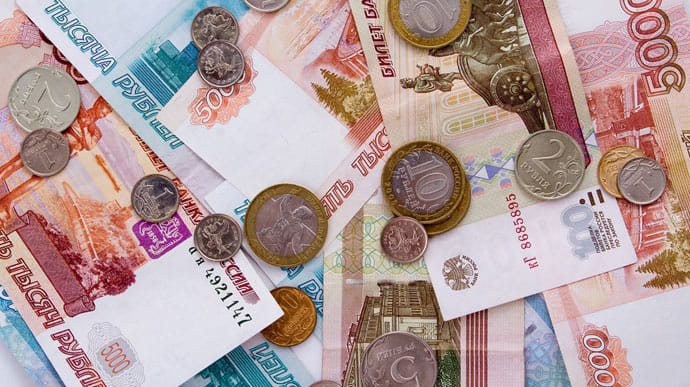US proposes that G7 agree on plan to seize US$300bn of Russian assets – FT

Ukraine's allies are rushing to agree on a plan to confiscate US£300 billion in frozen Russian assets by the second anniversary of Russia's full-scale invasion, with the US now proposing that G7 working groups explore ways to do so. Source: Financial Times Details: It is reported that no decisions have been made so far, and discussions on this issue in European capitals are continuing.
However, the newspaper emphasised that the acceleration of work on the confiscation of Russian assets for Ukraine underscores its growing importance for the West.
Advertisement:This topic was discussed this month by both G7 finance ministers and their deputies. The United States, with the support of the United Kingdom, Japan and Canada, has proposed to continue preparatory work so that options are ready for a potential meeting of G7 leaders around 24 February. The three working groups proposed by Washington would examine the legal issues surrounding confiscation; how to implement the policy and mitigate the risks; and options for how best to send this support to Ukraine.
Germany, France, Italy and the EU have expressed some reservations, saying that the legality of Moscow's asset confiscation should be carefully assessed before a decision is made. Several European ministers have also stressed that a high level of secrecy should be maintained. Various options are being considered in Western capitals, ranging from direct confiscation and spending of the Russian Central Bank's assets to generating income from frozen assets or using them as collateral for loans.
The Financial Times stated that the EU is not yet seizing Russian assets themselves, but is exploring ways to extract profits earned by financial institutions such as Euroclear, which holds EUR191 billion worth of sovereign assets. So far, Washington has not publicly supported the seizure of Russian assets. But this year, the United States privately circulated a discussion paper within the G7, suggesting that seizing Moscow's frozen assets would be legitimate as a countermeasure to encourage Russia to stop its aggression.
Europe, where most of the assets are located, is much more cautious. It fears possible consequences for financial stability, as well as retaliation from Russia. Italy, which will assume the G7 presidency in 2024, is among those concerned about potential retaliation against its companies operating in Russia, which Moscow has already threatened.
Russia has also stated that it will cut off diplomatic relations with the US in response to any asset confiscation. The EU, the UK and France also stressed that the money would not be readily available or sufficient to cover Ukraine's reconstruction needs, and that the seizure of assets should not come at the expense of financial support for Kyiv in 2024. Over the past two years, the G7 has been able to overcome disagreements among its members on several occasions over economic measures against Russia, including the initial broad package of sanctions, as well as the price cap on Russian oil.
Background:
- Earlier, it was reported that the Biden administration had stepped up efforts to confiscate about US£300 billion of sovereign Russian assets frozen in Western countries.
- On 12 December, the European Commission approved a legislative proposal to use the proceeds of frozen Russian assets to reconstruct Ukraine, which was taken note of by the European Council on 14 December.
Read more on the topic: Euroclear will help us: will investment income from Russian assets in EU become compensation to Ukraine
Support UP or become our patron!